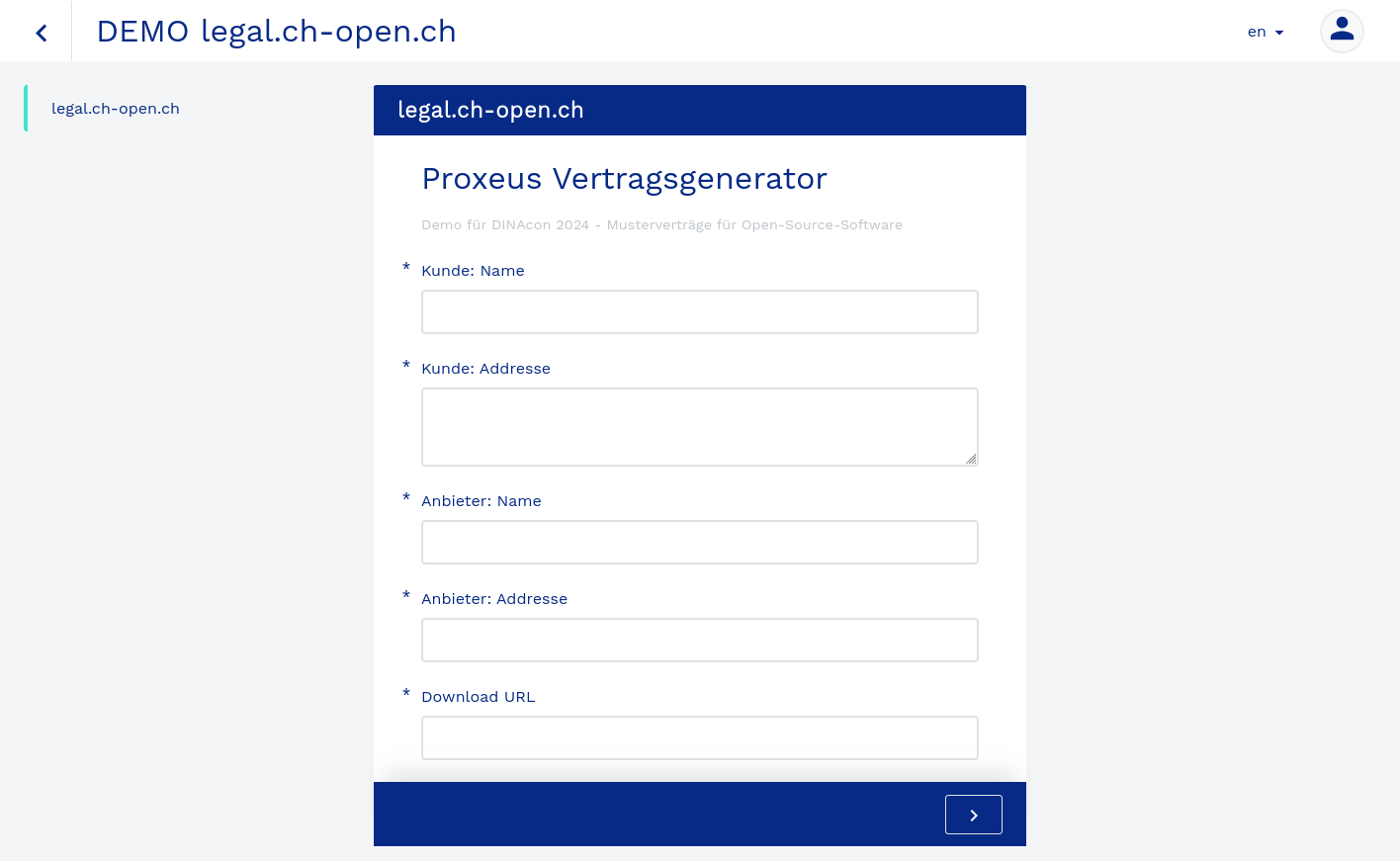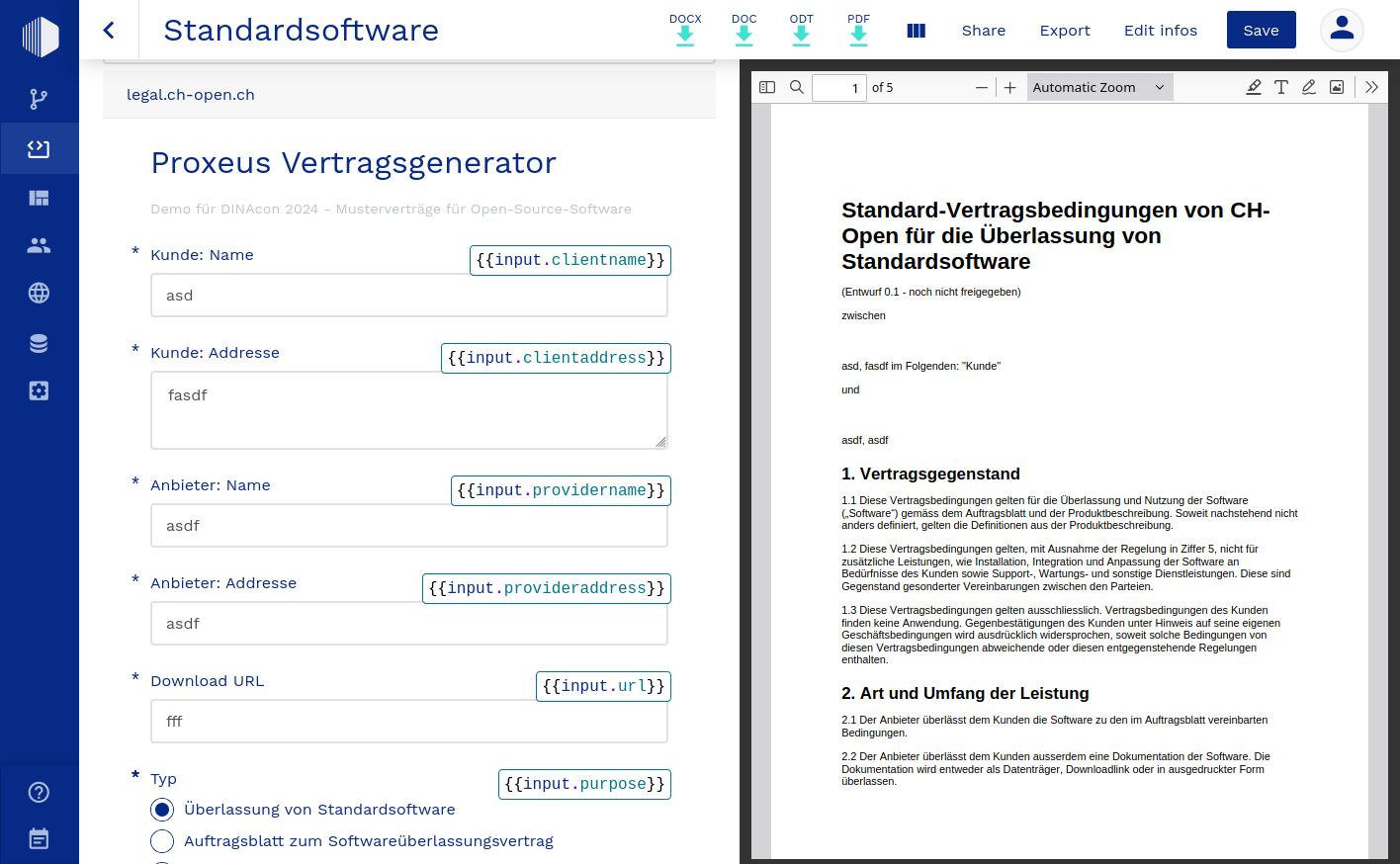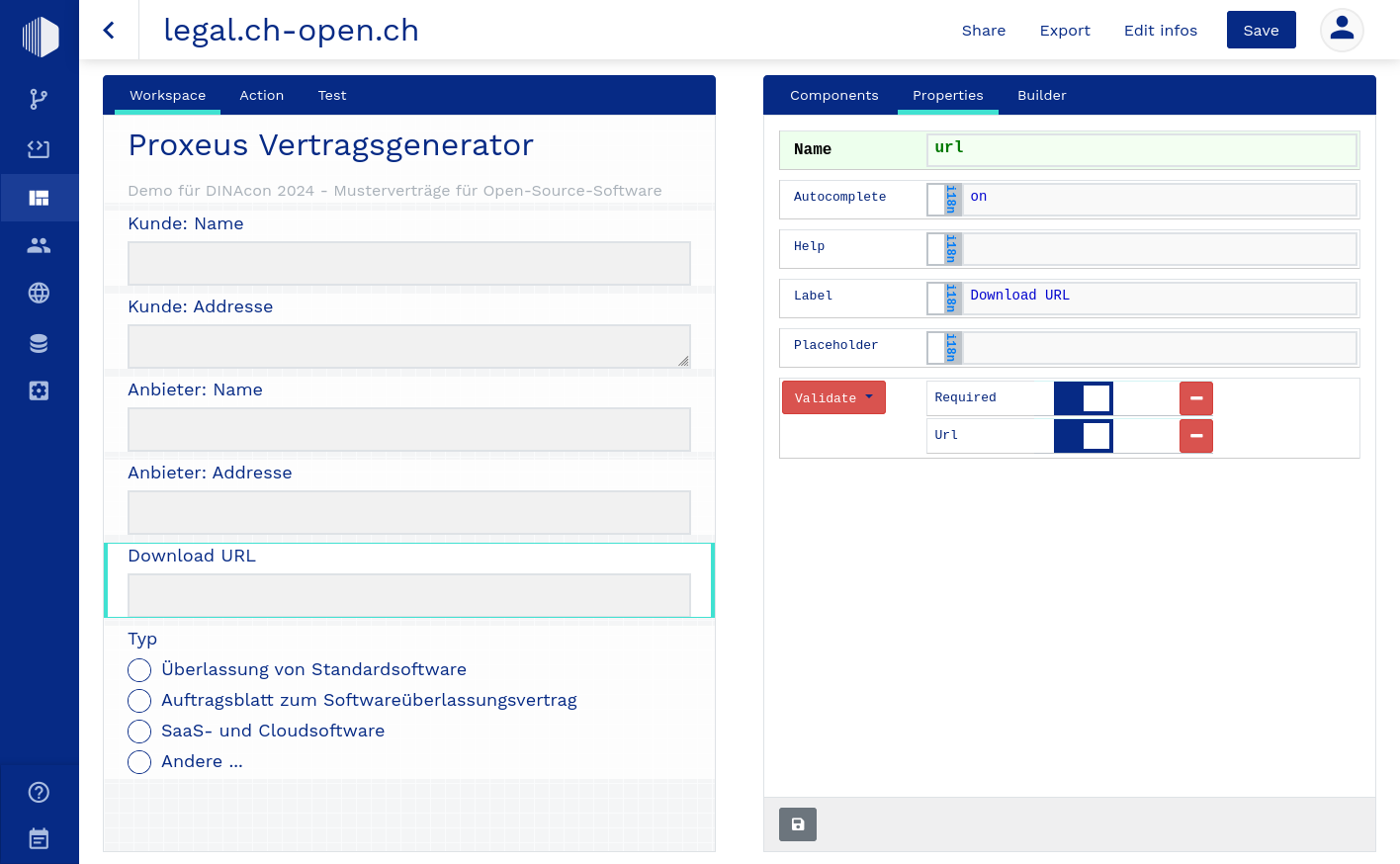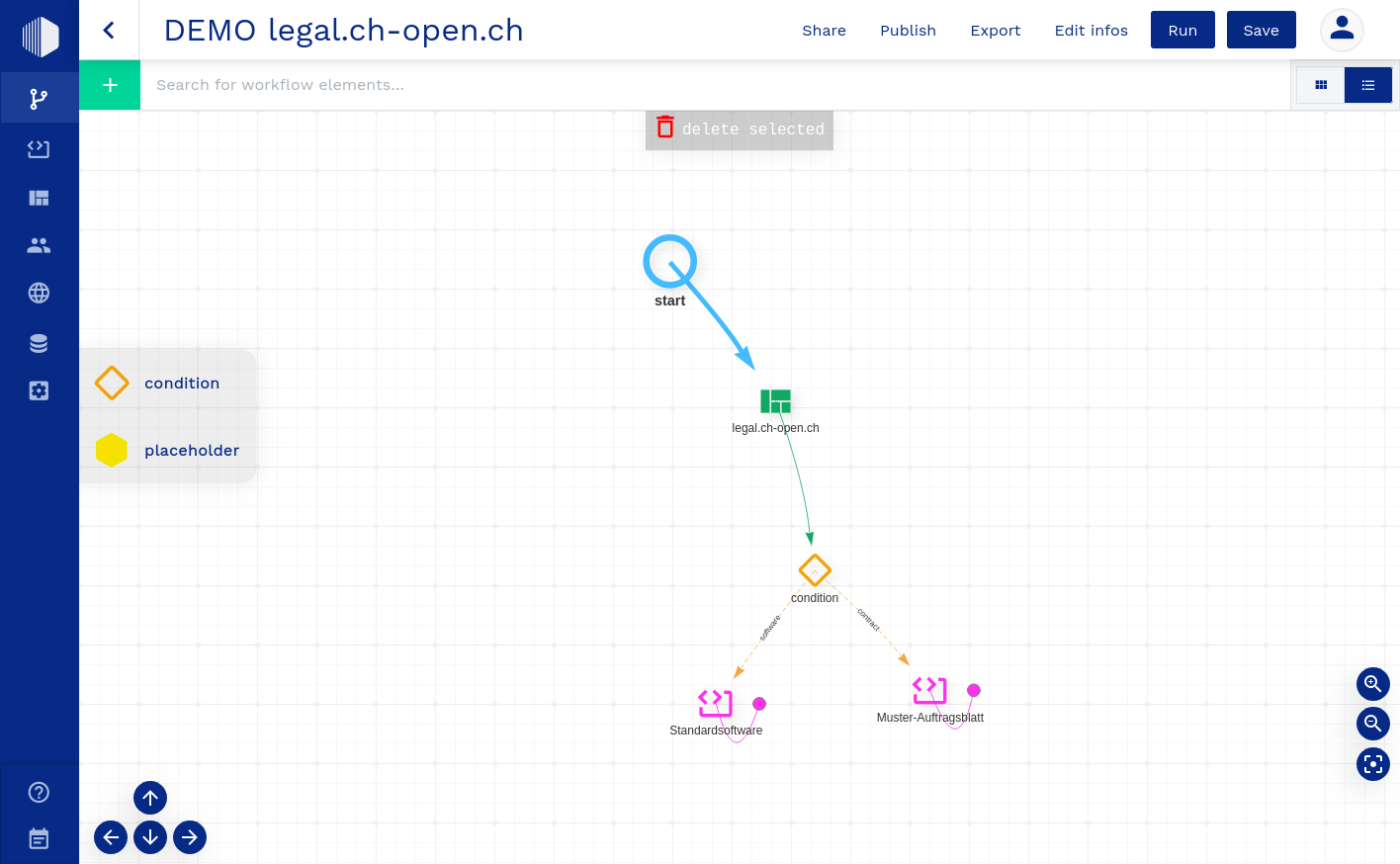Report
💡 Active projects and challenges as of 23.10.2025 05:20.
Hide text CSV Data Package Print
#parldata
AI in Parliament count()
Question from the audience: how many proposals and sessions currently deal with AI topics? Off the cuff, we were told 100 proposals and 30 dossiers. Stimmt es? Let's check the open data!
🅰️ℹ️ Imagine a future where AI seamlessly enhances the functioning of parliamentary services while keeping humans at the forefront. We invite you to explore innovative solutions that leverage AI to support parliamentary research and streamline processes without compromising transparency and security. Focus on developing tools that can contribute to the pilot chatbot aimed at delivering comprehensive thematic documentation from resources like Parlament.ch, ParlData, and Fedlex.
Additionally, consider exploring semi-automated indexing of press articles and parliamentary interventions, ensuring that these advancements empower legislators and citizens alike. Your ideas can redefine how we view the integration of AI in governance, fostering a more effective, inclusive, and responsive parliamentary system. Work collaboratively to unleash creativity, respect diverse perspectives, and contribute meaningful solutions in the spirit of fairness and democracy!
Curia statistics
| Thema | Geschäfte Total | Erledigt | Hängig | Überwiesen | Amtliches Bulletin |
|---|---|---|---|---|---|
| Datenschutz | 966 | 810 | 49 | 45 | 742 |
| Software | 477 | 413 | 19 | 17 | 312 |
| Algorithmen | 65 | 47 | 15 | 3 | 27 |
| Cloud | 59 | 50 | 7 | 2 | 61 |
| KI-Systemen | 21 | 12 | 6 | 3 | 4 |

The presentation will give an insight into the current and future projects focused on the integration of AI in parliamentary services. It will highlight AI's role as a co-pilot, emphasizing that humans remain central to all processes. The presentation will detail the upcoming launch of a pilot chatbot which will support parliamentary research by providing thematic documentation using resources like Parlament.ch, ParlData, and Fedlex. The Proof of Concept (PoC) will be tested, along with a pilot project for the semi-automated indexing of press articles and parliamentary interventions. The presentation will conclude by emphasizing the transformative potential of AI in enhancing parliamentary processes while maintaining a human-centered, transparent, and secure approach to its development and application.
#dinacon #hacknight #ideasarefree
DINAcon 2024
Quick guide on suggesting a challenge from a talk
While attending DINAcon, you may want to highlight a project or idea that was mentioned by a speaker. This is easy to do:
- Click on the 🟩 green cube on the event page, or just use this link to add something to the hexagrid.
- If it is a talk, just copy and paste the Pretalx link. We've helpfully embedded the Program for you 👇 below. Or if there is an open source repository, use that link — otherwise, skip and add a title and summary.
- Fill it out with any 🧠 thoughts to reflect on what you heard, open questions, and additional
HACKnightchallenges. - Share! Tell your friend in the next chair at the conference to Join your suggestion, or use the Invite function to email a link.
P.S. if you want to see closer integration of our platforms, leave a comment here or vote up for our GitHub Issue
DINAcon 2024 Program
The DINAcon HACKnight is a way to learn about and contribute to Open Source projects in a hands-on way. This event is open to all, and caters to all levels of technical skill. Our focus will be on all projects nominated and showcased at DINAcon.ch, the Swiss digital sustainability conference - other open source/data/hardware projects are welcome. Committers and experts are on hand to guide you through to your first bug report or code commit!
All Challenges posted at hacknight.dinacon.ch are announced at the start. Visit the site to browse activities from previous years.
Download the official wallpaper, checkout the Issues list, and get HACKing! See this blog post for a recap of our first event.
Terms
The most important rule of the HACKnight event is:
For further guidelines of conduct, please refer to confcodeofconduct. As this is an open source event, we will encourage all teams to publish their work under open licenses in open repositories, such as but not restricted to GitHub. The organizers, sponsors, and event staff shall not claim or request any endorsement or special rights and privileges to any work you do at the event. All project documentation created or shared during the event for projects published as above will be republished and promoted under a Creative Commons 4.0 Attribution license.
#openlegaltemplate
Model agreements for open source software
A repository of sample contracts that companies can use in business transactions for the use and development of open source software.
The authors present a repository of sample contracts that companies can use in business transactions for the use and development of open source software. Our talk presents the idea of a repository of openly licensed contracts and other legal templates, created primarily for use among and by the open source community. This discussion has circulated for some years within CH Open, reignited by recent publications of nearby communities.
Our talk will go beyond just the idea, but present a prototype of this repository, built on open data best practices, and an open source platform designed for legal work. In our demo, we will guide you through a questionnaire, quickly producing a contract in standard formats. Let's discuss:
- What about liability for the contracts?
- Is it even possible to work with templates, which situations would that be? What do the existing templates cover?
- Why do we think this will improve the resilience and sustainability of development?
- How do we plan to enable collaboration among the legal/technical community?
- Where will A.I. play into our designs?
Please add further questions and your comments into our GitHub discussion
Proxeus Demo
Demo server for contract generator prototype: sepolia.proxeus.org
Screenshots




Just for fun
An ancient legal piecemeal:
Model agreements for open source software
(Musterverträge für Open-Source-Software)
A repository of sample contracts that companies can use in business transactions for the use and development of open source software.
Presented at DINAcon 2024
About
This is a prototype of a repository of openly licensed contracts and other legal templates, created primarily for use among and by the open source community in Switzerland. This discussion has circulated for some years within CH Open, reignited by recent publications of nearby communities. Our project aims to build on open legal data best practices, and promote open source platforms designed for legal work.
Formatted in Markdown using legal-markdown
The proxeus folder contains exports for a demo Proxeus workflow
References
In Switzerland
- Open Legal Lab projects: Digitale notarielle Urkunde, Legal ML datasets
- Digitale Gesellschaft - Auskunftsbegehren
- CH Open - OSS Directory - e.g. Gianni Fröhlich-Bleuler 2022
- IT-Beschaffungskonferenz
- BFH - Beschaffungs-Roundtable
- SWICO / SwissICT - IT-Modellverträge
Globally
- Understanding the Legal Side of Open Source
- Simplicity Metrics for Legal Text
- Open Source Contracts - David Tollen (2021)
- On Docracy (RIP): opensource.legal, blog.eversign
- Free contracts for Freelancers (Medium blog)
- Radical Transparency in the design of Legal Services
- Clause acquisition by Docusign
- Githubbing Law (Margaret Hagan)
- Open Source Construction Contracts (Pete Fowler)
- Resolving Contractual Ambiguity in Open Source Licenses (Google Open Source Casebook)
- Lawtomated - Open Source Contracts (2017 - NB: part 4 insights)
- Legal Impacts of Open Source and Free Software Licensing (O'Reilly book chapter)
Licenses & Tools
- OSBA Standard-Vertragsbedingungen für SaaS- und Cloudsoftware (PDF)
- Creative Commons: Chooser (Beta), Legal database
- Accord Project (via opensource.legal)
- GitHub tag legal-documents
- GitHub - Open Source Contracting (+ Generator + README)
- Musterverträge für Trading GmbH
- Proposal Kit - Open Source Software Installation Agreement ($$)
- Open Source Contract Management
- Legal Snippets for SublimeText
- Type Common Forms in 2 Minutes via Templating for Lawyers - also Eris Legal Markdown
- Legal MD: Markdown for Legal Documents
- Use Pandoc to write legal scholarship in Markdown
- Openterms: Generate legal texts in markdown format
- Automated visual contracting (via Cornell blog)
- Useful Legal Documents For Designers (Smashing Magazine)
Technical Projects
- JSON-Unify is an Open-Source Data Contract Specification
- Catala is a programming language for translation of statutory law into an executable implementation
- OpenContracts via opensource.legal
- Proxeus Handbook for Smart Templates
Public Sector
License
Retro PGF
Retroactive Public Goods Funding
This challenge is based on an interview by Philip Heltweg with David Gasquez about funding models and open data in the Web3 ecosystem.
Retroactive Public Goods Funding (Retro Funding) is based on the idea that it's easier to agree on what was useful in the past than what might be useful in the future -- Optimism community
{ hacknight challenges }
Read the full conversation or our summary below, and check out the recommended learning resources:
✅ Get the book: Designing Data-Intensive Applications by Martin Kleppmann
✅ Try out Kaggle and AIcrowd, platforms for data science competitions
Find a person to interview in the context of open source/data ecosystems in your near vicinity, or online. Publish this interview as a recording, blog or social media post. Share the link here and on social media.
Design and build a platform or application that leverages open data portals to create value and generate revenue. Inspired by Drip Lists, GitHub Sponsors, Gitcoin Grants and Filecoin Open Grants, we challenge you to create a innovative solution that showcases the potential of open data ecosystems.
The article features an interview with David Gasquez, who works independently on open data projects within the Web3 community. The conversation focuses on "Retroactive Public Good Funding" (Retro PDF), a novel funding approach in Web3. David's Background: David Gasquez works self-employed on open data projects, focusing on the Web3 ecosystem, aiming to create open pipelines with open data.
Retroactive Public Good Funding (Retro PDF) is defined as a grant received after completing a project. It involves building a fund for existing projects, community voting, and retroactive distribution of funds to selected projects. Implementation examples include voting via Google spreadsheets or the Filecoin data portal.
The interview speculates on whether this funding model could work outside Web3, potentially for open data portals or even public goods like parks, with participatory budgeting as a similar concept. There is mention of possible experimentation by the Linux Foundation, which needs to be confirmed. David mentions the importance of learning from previous rounds, as seen in Gitcoin's approach, to improve aspects like project surfacing, impact measurement, and more.
(Summarized will help from Llama 3.1)
Souveräne Mini-Cloud
Cloud Service Souveränität mit Laptop und RaspberryPi
Cloud Services gibt es aktuell nur von den Grossen (BigTech). Warum eigentlich? Ist es wirklich so schwierig eine Cloud zu bauen und Services bereitzustellen? Wir meinen das war es einmal. Technologien wie Ansible/Kubernetes und erschwingliche Hardware haben die Spielregeln geändert. Mit diesem Hack wollen wir beweisen, dass man Heute sehr wohl eine souveräne (zumindest kleine) Cloud bauen kann.
Der Organisator (Janik) bringt: 5 Raspberry PIs
Voraussetzungen:
- Ein Laptop vozugsweise mit Linux und alternativ Windows/WSL
Vorgehen:
- Installation der 5 Raspberries
- Einrichten Ansible und Kubectl auf dem Laptop- Konfiguration Ansible K3S-Rolle und Deployment Kubernetes-Cluster
- Definition der Applikationen für das Deployment
- Erstellen Deployment-Manifest-Dateien
- Bereitstellung der Cloud Services im Kubernetes-Cluster
- Erstellen Demo für Lifecycle eines Cloud Services
Noch Offen:
- Wie können SSL-Zertifikate für die Services im lokalen Netzwerk generiert werden?
- Welche Cloud Services sollen bereitgestellt werden?
- Ist genug Kubernetes KnowHow vorhanden?
See Also:
raspi-and-friends
HACKnight project at DINAcon 2024
The group in the AULA Hacknight is working on the Souveräne Mini-Cloud with a bunch of Raspberry Pi.
Wifi
SSID: AULAthenet Password: inter-nett
Setup Raspi
Tom
Hostname: raspberry-tom IP: 192.168.102.136
Username: tom Password: dinacon
Mischa
Hostname: raspberry-mischa IP: 192.168.102.151
Username: mischa Password: dinacon
Ozzy
Hostname: ozzberry IP: 192.168.102.152
Username: ozzy Password: HackNight-2024
Foss
Hostname: foss (.local)
Username: janikvonrotz Password: janikvonrotz
SSH: Enabled SSH-Login: Password
ssh: ssh janikvonrotz@
Setup K3S
Link: https://docs.k3s.io/quick-start
In the terminal of your laptop:
sudo curl -sfL https://get.k3s.io | K3S_TOKEN=dinacon sh -
SSH to the rasperry pi.
Enable cgroup v2: https://maxdon.tech/posts/k3s-raspberry-pi/
echo ' cgroup_memory=1 cgroup_enable=memory' | sudo tee -a /boot/firmware/cmdline.txt
sudo reboot
Setup worker:
sudo curl -sfL https://get.k3s.io | K3S_URL=https://HOST_IP_ADDRESS:6443 K3S_TOKEN=dinacon sh -
Copy the kubconfig on your laptop.
sudo chmod 644 /etc/rancher/k3s/k3s.yaml
cp /etc/rancher/k3s/k3s.yaml ~/.kube/config
Check if node is ready on your laptop.
k3s kubectl get nodes
